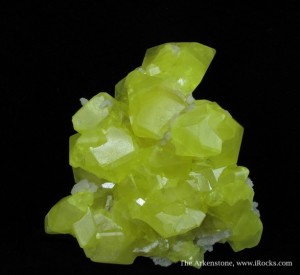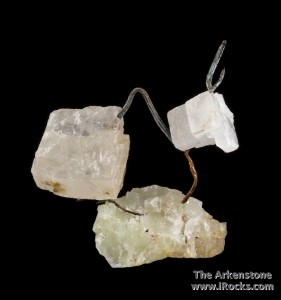Building Your Fine Mineral Collection With Online Rock & Mineral Auctions
With rock and mineral prices rising drastically over the last decade, many collectors are turning to online auctions in hopes of extending their reach, and locating desirable specimens at an affordable price. According to Forbes’ 8 Ways to Make Investing Pay Off, the finest specimens of tourmaline, rhodochrosite and crystallized gold were recently fetching more than $1 million apiece—about five times what they sold for only a decade ago.
Dr. Rob Lavinsky, president and founder of iRocks.com and MineralAuctions.com, was the first to bring a mineral-selling website online in 1996. He has handled a number of important collections, and has watched mineral shows and online auctions grow and expand for hobbyists, curators, collectors and investors alike.
While collectors agree that it is possible to make a sound investment in rocks and minerals, most advise collecting for the sake of collecting itself – as opposed to seeking a treasure trove of gems you hope will appreciate into a fortune. Dr. Lavinsky regularly emphasizes the art and science behind rocks and minerals. Of course, if you decide to build a collection of rocks and minerals as both hobby and investment – the best way to ensure that your collection will appreciate well is to purchase your specimens at the right price, initially.
These days, digital estate sales and online auctions top the list of recommended resources for locating a great deal – especially for the beginning collector, who may not yet have established long-term relationships with reliable dealers, or other collectors who share their interests.
So, how does one successfully navigate the world of online rock and mineral auctions, in order to successfully build a collection? We’ve compiled these helpful tips, below.
- Become an expert. Whatever your stone or mineral of choice may be, become an expert in the identification that species. If you’ve decided to build a locality collection, familiarize yourself with historical finds. And, it never hurts to study pictures of well-known specimens, or those of verified quality, to get an idea of how these specimens photograph for auction. By growing your knowledge through careful research and study, you’ll build the intellectual capital you need to spot exemplary specimens, identify fakes, and inform your online purchases.
- Hold. Trade. Don’t bother trying to anticipate the market – at any time, discovery of a new locale or pocket could disrupt your projections, as could unforeseen closure of a current source. And, there is no accounting for taste – what is of interest today could fall out of favor, over time. It’s best to purchase within your own interest – obtaining the best specimens you can afford (within your outlined budget) and then holding them, for future trade. This way, you can pare your collection down or expand it, as budget allows – and as your tastes or interests change.
- Curb compulsive behaviors – but not your passions. Establish a firm budget for online and auction purchasing, and stick to it! Remember that buying compulsively can lead to overspending – and even financial distress. Pursuing the purchases you are truly passionate about is important – and a great buy can certainly bring you satisfaction for years to come – but make sure that you are curbing compulsive behavior, or you may end up with more than you bargained for.
- Don’t overlook “lot” sales. It is sometimes worth pursuing bulk liquidation or “lot” purchases, in order to obtain a few key specimens or pieces. If the price is right, and you aren’t suffering from lack of storage space, bulk auctions can be a great way to add variety and interest to your collection, without breaking the bank.
- Familiarize yourself with the bidding process. Every auction house has slightly different rules and guidelines. At MineralAuctions.com for example, almost all of our mineral auctions start at low reserves of $10. How are reserve prices set? What are the minimum and incremental bid requirements? Do they support bidding by proxy? What happens if you enter a bid incorrectly? Make sure you are clear on the entire process for any auction you choose to participate in, and you’ll avoid expensive mishaps.
For more information on participating in online rock and mineral auctions, view our mineral auctions online or contact us at info@iRocks.com.

